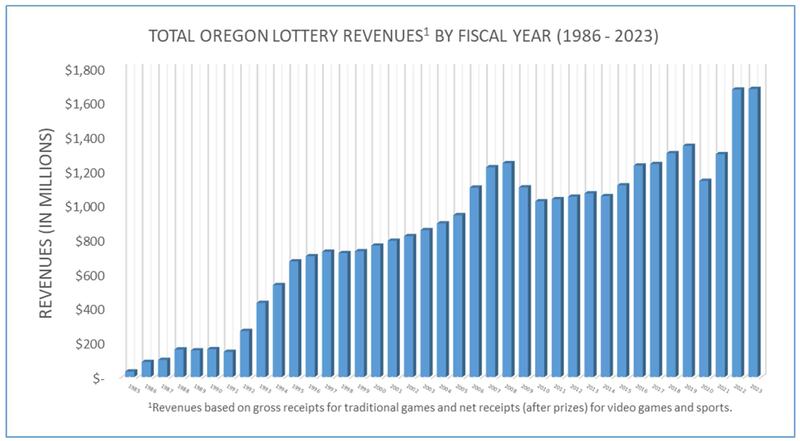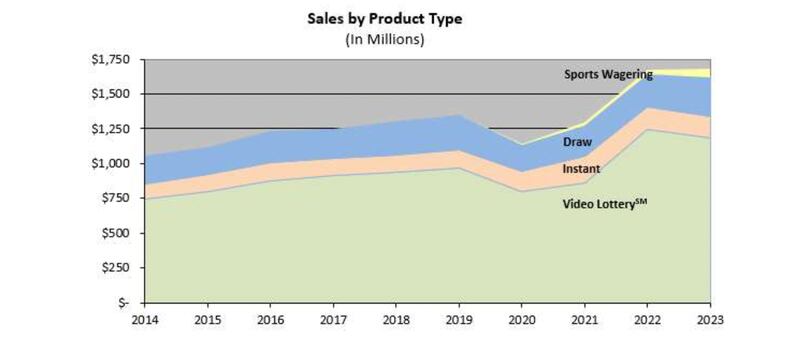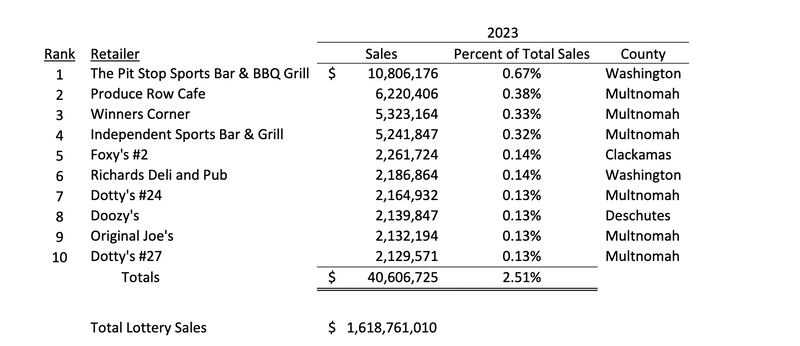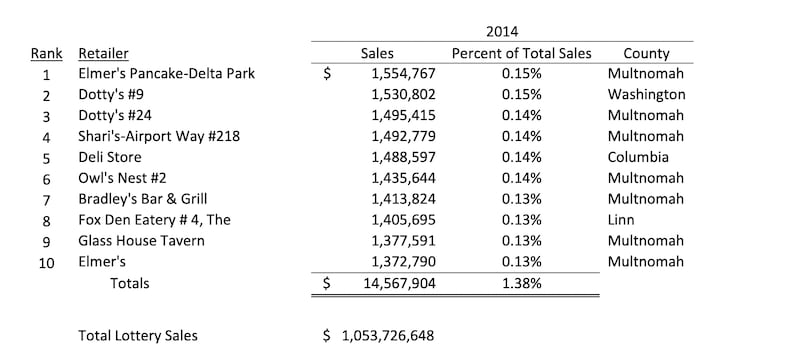Oregon Secretary of State LaVonne Griffin-Valade released a new financial audit this week of the Oregon Lottery, the agency that provides the second-largest pot of state funding after income taxes.
The new audit shows a second consecutive year of very robust revenues after a period in which the COVID-19 pandemic shut down the bars and taverns that provide most of the agency’s income through nearly 11,000 video lottery terminals.
Here’s how 2023′s $1.678 billion in revenue (down a fraction of 1% from 2022) stacks up historically:

Video lottery revenues have boomed even though agency figures show there are 8.5% fewer machines across the state than there were a decade ago. That’s because people are playing the video lottery more: Oregonians wagered $395.66 per capita last year, versus $261.12 in 2014.
Within the numbers, there was actually a tiny decline in net video lottery revenue in 2023, although that game continues to produce about 70% of the agency’s net revenue.
One significant change from last year: The numbers show that state revenue from sports betting jumped substantially and far more than budgeted: The state netted $55.3 million from sports bettors, a 72% increase from 2022. That net gain came from a gross total of $565.5 million bet on sports, which is 7.2% higher than the agency budgeted.
Although sports betting accounts for just a small fraction (3.3%) of total lottery sales last year, the agency is counting on young sports bettors to replace some the aging video lottery players over time.
Lottery spokesman Matt Shelby says the agency is pleased with the growth of its sports book, which since 2022 has been operated under a new contract with DraftKings.
“We launched with Scoreboard [in 2019] and then switched to DraftKings,” Shelby says. “In effect, we started over. The player base is still maturing, and sports betting is becoming much more mainstream.”

The state’s reliance on gambling makes critics uncomfortable. “Oregon is uniquely dependent on lottery tax revenue at the expense of our public health,” says Kitty Martz, executive director of the advocacy group Voices of Problem Gambling Recovery. “We need to prevent further public health impact and get some legislation in place.”
Martz and other critics have long pointed to the state’s conflicted position: Through the Oregon Health Authority, the state provides mental health services, including funding to treat gambling addiction, as well as a variety of other services to families of those afflicted with a gambling addiction. Yet the Oregon Lottery is tasked with raising money for education, economic development, parks and other essential services.
The lottery’s cash has proven irresistible to lawmakers, but Martz says it comes at a long-term, hidden cost. “Let’s look back at the onset of the opioid epidemic,” she says. “We later vilified Big Pharma, but where was legislative regulation? The lottery offers an addictive product, self-regulates, and is charged with maximizing profits. We need to better define how that serves the public good.”
The audit also included a list of the top 10 video lottery purveyors in the state—and some historical context for how that has changed over time:


Shelby says the enormous increase at the top of the list of lottery purveyors is attributable to a relatively new option—couriers who buy and redeem lottery tickets for players living in other states and, in some cases, overseas.
“All of the top four retailers are associated with a courier service,” Shelby says. “It’s like DoorDash for lottery tickets.”
